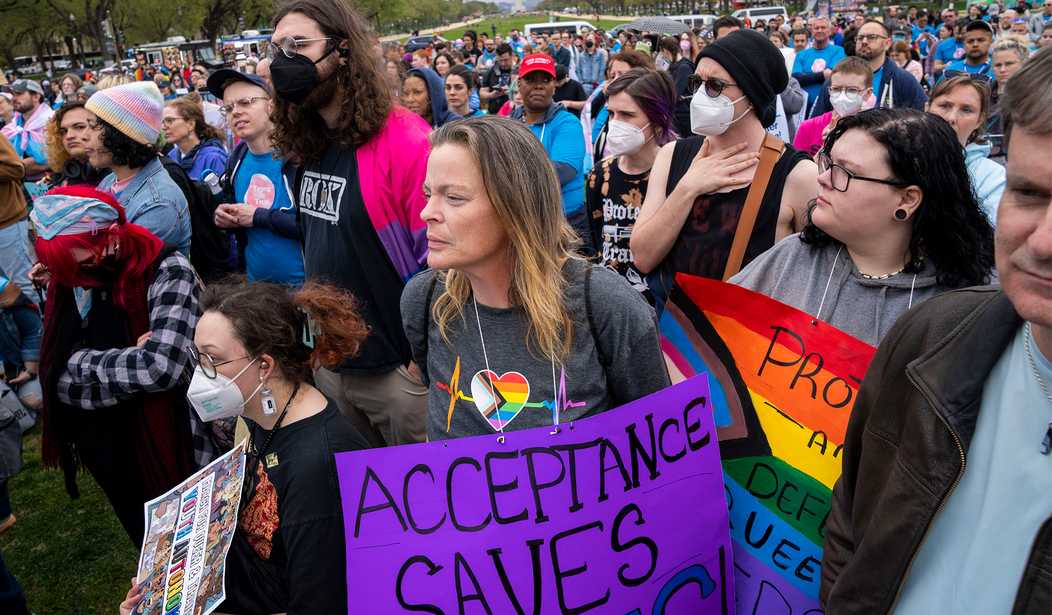A study by the University of York found that there has been a 50-fold increase in the number of children who believe they are the wrong gender from 2011 to 2021.
An analysis of general practitioner (GP) records "suggests there were 10,000 diagnoses of gender dysphoria in England in 2021 – up from fewer than 200 cases in 2011," according to the UK Telegraph.
There were twice as many cases of boys suffering from gender dysphoria over that period, with a sharp rise in the number of girls who were gender confused.
The Cass review published earlier this year discovered rampant misdiagnoses in the gender care community of preteen girls. That these girls were suffering mentally was not the issue. However, the frequent diagnosis of gender dysphoria when co-morbidities like depression, self-harm, and other mental health problems were present may have been contributing factors in the girls' anxiety.
The author of the study, Dame Hilary Cass, raised concerns about the “schools to clinics pipeline,” in which children are allowed to live as an opposite gender while at school, automatically creating a demand for clinical care later. Primary school children were allowed to change their names and pronouns without informing their families.
“There is an urgent need to tackle vulnerability to mental health difficulties and improve mental health support for children and young people experiencing gender dysphoria/incongruence," wrote the researchers of the York study.
The UK is light years ahead of the United States in the treatment of trans kids. Puberty blockers are forbidden for children under the age of 18. The review also recommended more care should be taken in transitioning young children.
"Analysis of the data showed that between 2011 and 2021, incidence rates of recorded gender dysphoria rose from 0.14/10,000 to 4.4/10,000 person-years in this age group," reports the Telegraph.
Prof Tim Doran, from the University of York, said increased awareness of gender differences and the rise of social media were amongst the factors behind the trends, which were accompanied by a steep rise in anxiety and depression.
He said it was not clear whether children with mental health problems were more likely to develop gender dysphoria, or whether the dysphoria was likely to lead to the distress, saying the evidence so far could not untangle a “chicken and egg” argument.
I don't think there's any doubt that schools have contributed in a huge way to this explosion of "gender confusion" among young children. Teachers are told to look for the "signs" of dysphoria and are eager to "help" a child confront their anxiety. Even well-meaning teachers can have a devastating impact on the mental health of a child who may only be anxious about something unrelated to gender.
Maya Forstater, the chief executive of the charity Sex Matters, told the Telegraph, “Doctors are having to deal with gender-confused children who have already been socially transitioned at school for years, and are, as a result, very disturbed by the idea of going through puberty, which will develop their secondary sex characteristics. If social transitioning in schools is stopped, it will take the pressure off clinics."
Imagine making a child fearful of growing up. What is wrong with these people?
“The Department for Education needs to say there is no way to keep children safe in schools while you are pretending that a boy is a girl, or that a girl is a boy. You are putting children through a psychological experiment with no clinical oversight. The whole thing is a fantasy being sold to children by adults who should know better," Ms. Forstater added.
Also for our VIPs: DEI Isn't Dead. It's Being Rebranded, Reconstituted, and 'Reimagined'
The Cass review led to a radical change in policy.
Under the new “parent-first” approach, head teachers must tell parents if their child wants to change gender. The guidance had been promised since 2018 but was delayed amid a disagreement within the Government over how to respond to the rise in the number of children who say they are trans.
Some gender-critical campaigners have said it does not go far enough because it does not ban social transitioning completely.
How many children are being permanently damaged by adults who may or may not mean well but have a warped understanding of children's mental health and what they need to grow up to be happy, healthy adults?










